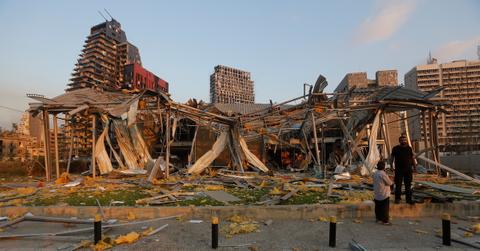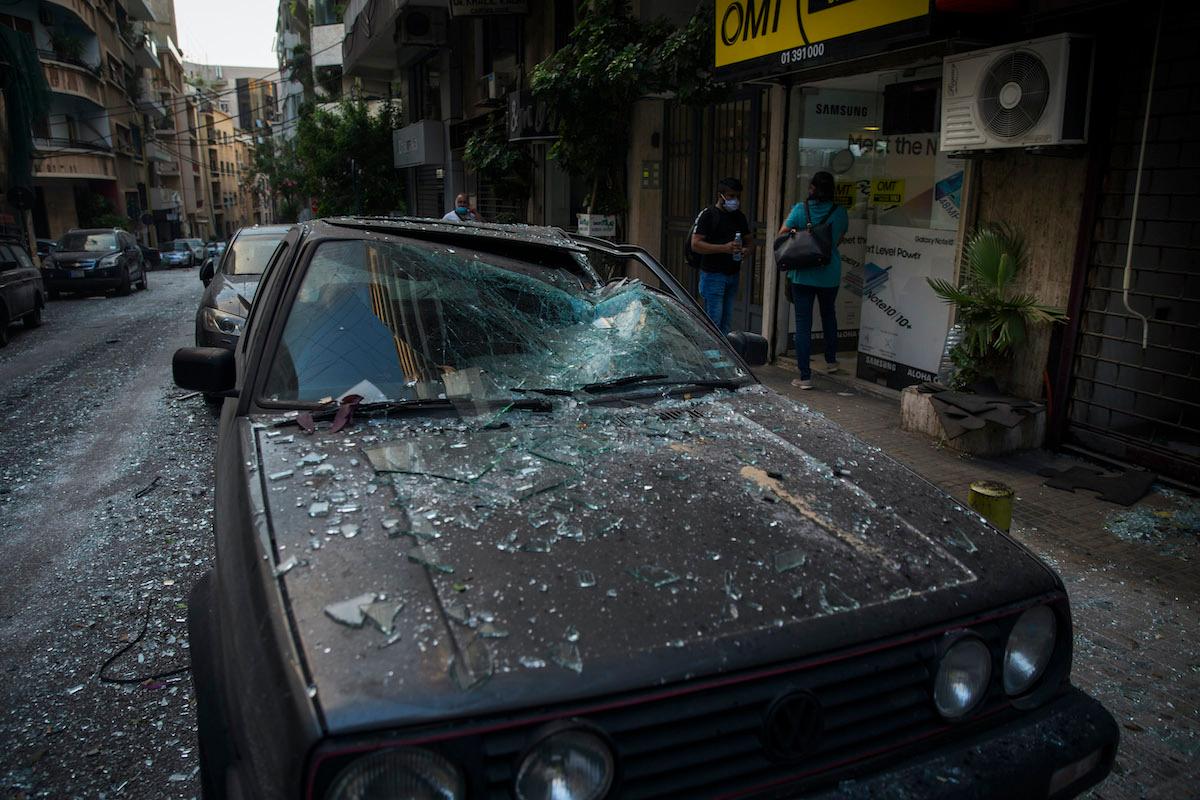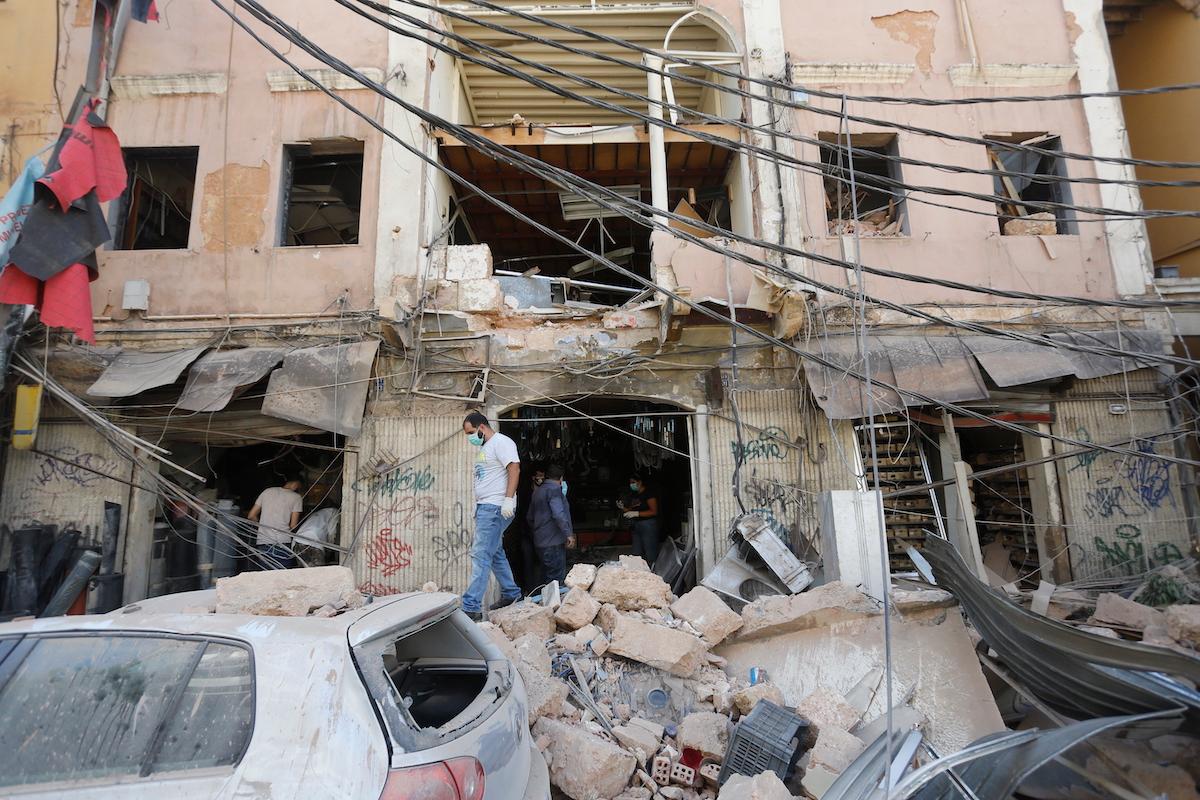What Caused the Beirut, Lebanon Explosion?
Beirut, Lebanon suffered a deadly ammonium nitrate explosion, killing 100 people, injuring thousands, and displacing hundreds of thousands.
Updated Aug. 5 2020, 12:12 p.m. ET

Eyes all around the world are on Beirut right now. On Tuesday, Aug. 4, a warehouse explosion in Lebanon’s capital city injured around 4,000 people and killed at least 100 others, leaving people terrified and concerned.
Here’s everything you need to know about the explosion in Beirut, Lebanon.
What happened in Beirut, Lebanon?

On Tuesday, a large warehouse exploded in Beirut, as reported by the AP. The explosion took the shape of a massive mushroom cloud over the city, and it ricocheted for miles. It knocked roofs and balconies off buildings, totaled cars, knocked bricks off buildings, and left rubble littered all across the city. Locals described the feeling of the explosion similar to an earthquake.
Photos and videos of the explosion’s aftermath show the streets of Beirut in ruins, with countless people covered in blood. Reuters spoke with a nurse from Beirut’s Clemenceau Medical Center, who described the hospital following the explosion “like a slaughterhouse, blood covering the corridors and the lifts.”
The explosion was intense enough to permeate past the country’s borders, and could reportedly be felt as far away as Cyprus, an island nation about 100 miles away from Beirut.
What caused the explosion in Beirut, Lebanon?

The explosion occurred in a port warehouse that had been improperly storing about 2,750 tonnes of ammonium nitrate, according to President Michel Aoun, as reported by Reuters.
And according to The Guardian, Lebanon’s prime minister Hassan Diab explained that a ship carrying a similar amount of ammonium nitrate had unloaded at the port in 2013, meaning it has been unsafely sitting in the warehouse for six to seven years.
Some Lebanese lawmakers reportedly asked the government to advise on relocating the thousands of tons of ammonium nitrate several times between 2014 and 2017, but the country's courts did not respond, as per The New York Times.
While there is no definitive evidence as to why the ammonium nitrate suddenly exploded, many experts believe it has to do with the chemical being stored incorrectly and unsafely.
What is ammonium nitrate?
Ammonium nitrate is a synthetic chemical compound most commonly used to make both bombs and garden fertilizer. Bombs and fertilizer are very different things — so how does the compound work for both purposes? According to The Guardian, ammonium nitrate is a strong source of nitrogen, which plants need to grow, making it an effective fertilizer. However, when put into certain situations, ammonium nitrate is a deadly explosive.
Ammonium nitrate is generally regarded as safe to use as a fertilizer because it is not explosive on its own; for ammonium nitrate to become an explosive, it needs to be put into “extreme circumstances,” Gabriel da Silva of the University of Melbourne explained to The Guardian.
Da Silva believes the ammonium nitrate was somehow contaminated with oil, which is what causes it to suddenly become explosive and blow up.
Andrea Sella of the University College London has another theory. As he explained to the BBC, when a huge amount of ammonium nitrate is simply sitting in storage for a long time, it can start to decay.
"The real problem is that over time it will absorb little bits of moisture and it eventually turns into an enormous rock," Sella told the BBC, explaining that if a fire reaches ammonium nitrate rocks that have been formed, it can cause an enormous chemical reaction.
How many people died in the Lebanon explosion?

According to Reuters, the explosion killed at least 100 people and injured almost 4,000 others. As of Wednesday, rescue workers were still digging through the explosion’s ruins looking for anyone who had not yet been accounted for, and local officials still expect the death toll to increase.
Additionally, the explosions displaced an estimated 300,000 people from their homes, as reported by The New York Times.
How to help Lebanon after the explosion.
The Lebanon explosion is absolutely tragic — only made worse by the coronavirus — and the country is in need of aid. If you can afford to financially help, Fast Company compiled a list of local and international rescue groups accepting donations to help Lebanon.